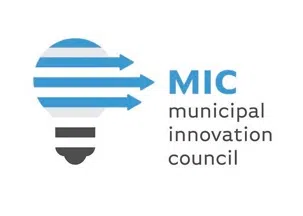The Municipal Innovation Council will end after this month.
It was made up of a number of Bruce County municipalities including Saugeen Shores, Arran-Elderslie, Brockton, Bruce County, Huron-Kinloss, Kincardine and South Bruce, and started as a three-year pilot project that aimed at coming up with better ways to delivering municipal services.
A letter to Arran-Elderslie council from Municipal Innovation Council (MIC) Chair Kara Van Myall says it ran a number of projects like topographical mapping, municipal vehicle electrification, the Food Cycler compost program aimed at reducing household waste, enhancing the skills of over 200 municipal employees, support for attainable housing initiatives, an IT services review, the Smart Beach project to improve beach safety, and the Simply Brilliant Idea program which encouraged creative solutions from member municipalities.
Van Myall tells Bayshore Broadcasting News, late last year, members made the decision to dissolve by March 31st. She notes resourcing was an ongoing challenge. “After five years, the time was sort of right and the decision came at a time where as a group we could really acknowledge that we fostered a lasting culture of innovation within our existing organizations.”
Van Myall says, “Each municipality that was partnering in it decided to take some of those ongoing efforts and integrate them into their respective organizations. She says one of the programs Saugeen Shores will continue, for example, is the Smart Beach program and also a partnership with Kitchener based Communitech through its fast track cities program. “We’re looking at how we can maybe use AI for administrative efficiency.”
Any surplus money the MIC it hasn’t used will be returned to the municipalities who funded it. It cost about $2.50 per household to run and matched or doubled that in the grant money it secured.
The MIC’s wrap up report says during its five years it conducted a review of solid waste management services to give data and insights to municipalities. It made 24 recommendations to make waste management more efficient and guide future decisions. It says it helped municipalities avoid an estimated $80,000 to $150,000 in individual costs.
Its digital topographical mapping project used AI and machine learning to improve Geographic Information Systems for municipalities and local conservation authorities. They say it saved municipalities about 14,000 hours of in-house work and saved each municipality about $70,000.
The Smart Beach project involved a water condition warning system at Station Beach in Kincardine. They did surveys, used machine learning and a network of wave buoys, weather stations and the Seagull – Great Lakes Observing System (which has a web site where you can see lake temperatures, wave height, wind speeds etc). They used the data to forecast surf related hazards.
Van Myall says phase two of the Smart Beach program is going to carry on in Saugeen Shores.
Its FoodCycler program, which subsidized a countertop composting machine made by Food Cycle Science has been rolled out in a number of communities with about 420 households diverting 116.3 metric tonnes of food waste from local landfills per year.
Its ‘Simply Brilliant’ program encouraged municipal staff to bring forward ideas to improve their municipalities, from reducing paperwork to improving equipment and eliminating waste.
Van Myall’s letter thanks the board members, (CAOs of the municipalities) and Director Tony Houad, as well as the Nuclear Innovation Institute. She also thanks the County and local councils for supporting the MIC, noting, “By allowing us to adopt this innovative mindset and develop the partnerships We were able to become a leader in developing creative and responsive solutions to challenging situations that municipalities are currently facing.”



